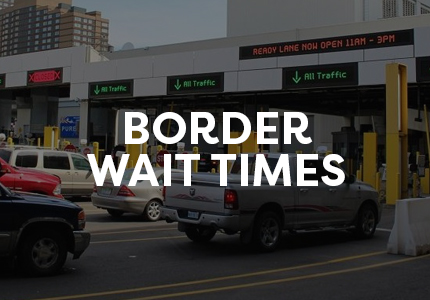DID YOU KNOW THE WINDSOR-DETROIT BORDER IS THE BUSIEST INTERNATIONAL CROSSING IN NORTH AMERICA?
Typically more than 40,000 commuters, tourists and truck drivers carrying $323 million worth of goods cross the Windsor-Detroit border each day.
Border Crossings
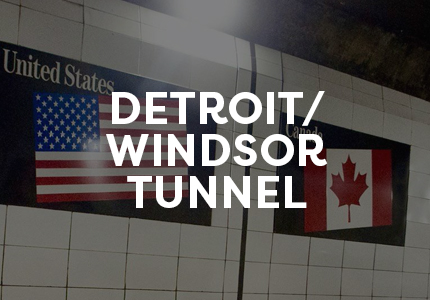
Toll (passenger vehicle):
- $6.75 CDN (Windsor to Detroit)/$6.50 USD (Detroit to Windsor)
- $5.40 CDN or $4.20 USD (Windsor to Detroit)/$5.60 CDN or $4.60 USD (Detroit to Windsor) when using NEXPRESS®
- $5 CDN or $4 USD when using NEXPRESS® Passenger EV *Please see website for further details
- $5 USD (Windsor to Detroit)/$5.40 USD (Detroit to Windsor) when using DWT Mobile App *Purchases are in round trip
Note: The Tunnel is fully cashless accepting NEXPRESS® Toll Cards, Debit and Credit Cards.
For detailed information regarding toll rates, please visit takethetunnel.com
Crossing into Canada, the Detroit-Windsor Tunnel is a direct link to downtown Windsor/Ouellette Avenue, Caesars Windsor Hotel & Casino, Windsor International Airport, VIA Rail
Crossing into the U.S., the Detroit-Windsor Tunnel is a direct link to Downtown Detroit, The Lodge Freeway (M-10), I-75 (easy access to Northbound I-75), Detroit Metropolitan Airport, Duty Free Shopping
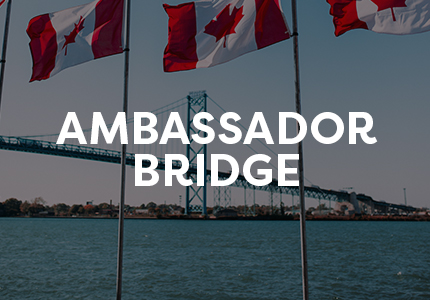
Toll (passenger vehicle):
- $8 USD (Detroit to Windsor) / $11 CAD (Windsor to Detroit)
- $6.25 USD when using Ambassador Bridge Premier Commuter Card
For detailed information regarding toll rates, please visit www.ambassadorbridge.com
Crossing into Canada, the Ambassador Bridge is your most direct link to Highway 3, Highway 401, E.C. Row Expressway
Crossing into the U.S., the Ambassador Bridge is a direct link to many major arteries/destinations, including I-96, I-94, I-75 (easy access to Southbound I-75), Detroit Metropolitan Airport, Duty Free Shopping
Shopping “duty free” means no GST, no federal tax, no manufacturing tax, no excise tax and no provincial tax. It all adds up to huge savings for you!
The Gordie Howe International Bridge project is currently under construction and is scheduled to open to traffic by the end of 2025. The new bridge will provide a new crossing option in the Windsor-Detroit gateway – the busiest commercial land border crossing between Canada and the US – and will be a direct link from Highway ON 401 to Interstate I75.
The Gordie Howe International Bridge will be owned by the Government of Canada and the State of Michigan. With a clear span of 853 metres / 0.53 miles it has the longest main span of any cable-stayed bridge in North America, and the fifth longest in the world. It will have six-lanes: three Canadian-bound, three US-bound and a toll-free, dedicated multi-use path for pedestrians and cyclists.
The outside panels of the tower crane climbing system provided perfect canvasses for painting murals, with four climbing systems in place – two on each side of the bridge. Artists – Paul White, Teresa Altiman and Daisy White from Walpole Island First Nation, Naomi Peters from Caldwell First Nation, and Roberto Villalobos from Southwest Detroit were engaged as a special initiative to contribute their talents to the Canadian & US construction sites. More information can be found at www.gordiehoweinternationalbridge.com.
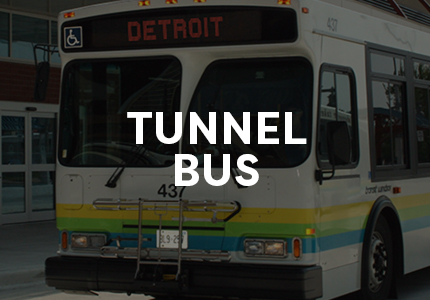
Tunnel Bus Service
Windsor offers an international transit system, giving you the option at affordable and easy transfers to and from the City of Detroit daily.
The Tunnel Bus, operated by Transit Windsor, is an exclusive feature of the Detroit-Windsor Tunnel. It offers low cost transportation between downtown Windsor and Detroit – perfect for quick, easy trips in Windsor’s and Detroit’s core areas. Buses leave from the Windsor International Transit Terminal at 300 Chatham Street West.
The Monday to Saturday scheduled is 6am to 9:41pm. The Sunday schedule is 8am to 7:41pm. There will only be one bus operating this service. Click here for the Tunnel Bus map and schedule.
Tunnel Bus Fare: (Exact Fare Only)
-
- One way (including service to Cobo Center/Hall, Rosa Parks Transit Center, Campus Martius and Hart Plaza.) – $10 CDN/U.S. each way. Per person. Click here for more information.
- Transit Windsor provides Special Event Bus Service to select sporting events and concerts in Detroit, Michigan. Reservations are required to use the Special Events Bus. Click here for important information. The fare is $15 per person for a round-trip ticket.
Visit Transit Windsor or call 519-944-4111 or 311 for more details or to reserve your seat.
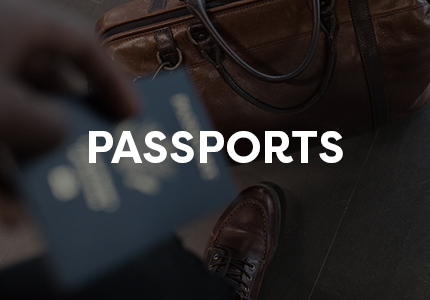
Passport Information
A valid passport (or other supporting documentation) is needed to cross the border between Canada and the United States.
All persons, including U.S. citizens, travelling between the United States and Canada are required to present a valid passport, or other documents as determined by the Department of Homeland Security.Recent legislative changes have introduced new documentation (alternative to a passport) that are accepted at land or sea border crossings from Canada, Mexico, the Caribbean or Bermuda. These include a Passport Card and/or an Enhanced Driver’s License, issued by the following states: Michigan, Minnesota, Washington state, Vermont and New York. For further information on all of these documents under the Western Hemisphere Travel Initiative, please visit cbp.gov for more information.
If you have additional questions, please call 313-393-3793 ext 0 for U.S. Customs or call 519-257-6473 for Canadian Customs.
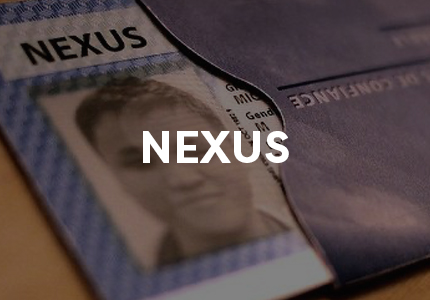
NEXUS Program
NEXUS is designed to expedite the border clearance process for low-risk, pre-approved travelers into Canada and the United States.
The Canada Border Services Agency (CBSA) and United States Customs and Border Protection (CBP) are cooperating in this joint venture to simplify border crossings for members, while enhancing security.
To become a member in this program, you must:
- submit an application and go through a registration process;
- satisfy the eligibility criteria;
- be admissible in Canada and the United States; and
- pass risk assessments by both countries.
TRAVELLING WITH PETS
It’s easy to travel with your pets to and from Windsor Essex, but there are some important steps you need to take while entering and exciting Canada.
ENTERING CANADA
If you are travelling with a pet or planning to import an animal to Canada, you will need the right paperwork at the border to meet Canada’s import requirements. If you don’t, you risk experiencing delays at the border and your animal may not be allowed into Canada.
For the details from the Government of Canada please click here.
LEAVING CANADA
Click the link below to determine what rules apply to your dog based on the dates of travel and where your dog is traveling from.
For more details from the Center for Disease Control (US) please click here.
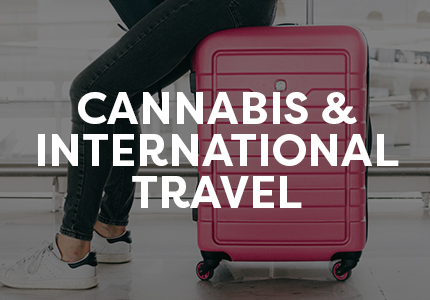
Cannabis and International Travel
In April 2017, the Government of Canada introduced Bill C-45, the Cannabis Act, to legalize, strictly regulate and restrict access to cannabis. On June 21, 2018, the Cannabis Act received Royal Assent. This marks an important step in the process of legalizing and regulating cannabis in Canada. For more information, visit Health Canada’s Cannabis page.
Entering Canada
Under the Cannabis Act, the legalization of cannabis in Canada does not change Canada’s border rules. Taking cannabis or any product containing cannabis into Canada will remain illegal and can result in serious criminal penalties both at home and abroad.
This will be the case even if you are travelling from places that have legalized or decriminalized cannabis. Transporting cannabis used for medical purposes will also remain illegal.
Travellers entering Canada can contribute to a smooth border crossing by understanding and complying with their obligations at the Canadian border.
It is illegal to bring cannabis into Canada. If you do have cannabis or products containing cannabis with you when you enter Canada, you must declare them to the Canada Border Services Agency. If you do not declare cannabis products when you enter Canada, you can face enforcement action, including arrest and prosecution.
Taking cannabis across the border is and will remain illegal.
Leaving Canada
Under the Cannabis Act, the legalization of cannabis in Canada does not change Canada’s border rules. Taking cannabis or any product containing cannabis across Canada’s international borders will remain illegal and can result in serious criminal penalties both at home and abroad.
This will be the case even if you are travelling to places that have legalized or decriminalized cannabis. Transporting cannabis used for medical purposes will also remain illegal.
Cannabis is illegal in most countries. Previous use of cannabis, or any other substance prohibited by local law, could result in a traveler being denied entry to their destination country.
Each country or territory decides who can enter or exit through its borders. The Government of Canada cannot intervene on your behalf if you do not meet your destination’s entry or exit requirements. Involvement in the legal cannabis industry in Canada could also result in your being denied entry.
Travelers are responsible for learning about the laws of the countries they intend to visit. See our Travel Advice and Advisories for information on your destination.
Travelers to the United States
Although the possession of cannabis is legal in some U.S. states, it remains illegal under U.S. federal laws in any form and quantity, making it illegal to bring across the Canada-U.S. border.
Previous use of cannabis, or any substance prohibited by U.S. federal laws, could mean that you are denied entry to the U.S. Involvement in the legal cannabis industry in Canada could also result in your being denied entry.
Even after cannabis is legalized in Canada, do not attempt to cross the Canada-U.S. border with any amount of cannabis in any form, even if you are travelling to a U.S. state that has legalized possession of cannabis. If you do so you can expect legal prosecution and fines, and possibly jail time.
Please click here for a 45 second video on “Cannabis and the Border”.
Don’t bring it in. Don’t take it out.
If you are entering Canada from another country, remember: if you have cannabis with you in any form, you must declare it to the Canada Border Services Agency. Not declaring cannabis in your possession at the Canadian border could also lead to arrest and prosecution.
If you are leaving Canada, remember: you may not take cannabis out of the country either. You may be subject to criminal charges if you attempt to travel to other countries with any amount of cannabis in your possession.
Detroit Metro Airport
Detroit Metro Airport is conveniently located just 37km from downtown Windsor, offering connectivity to all major U.S. airlines. Click metroairport.com for more details.
Several shuttle bus options are available to get to and from Detroit Metro Airport including:
CANADIAN BASED PROVIDERS
US BASED PROVIDERS
- Metro Cars
- Detroit Airport Xpress + Transit Windsor Tunnel Bus Service
With dozens of marinas along our 100 mile coast line, we are a great destination for day and over night boating trips. Be prepared before you set sail! Due to COVID-19 restrictions, crossing the border for recreation or tourism is currently prohibited – please see below for further details. Boating Requirements By Ferry (via Pelee Island, ON)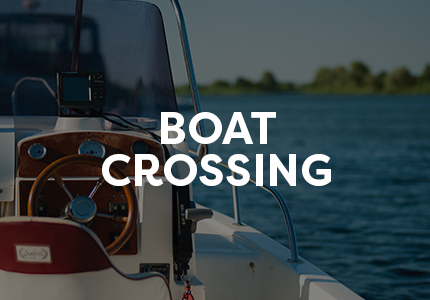
Boat Crossing

